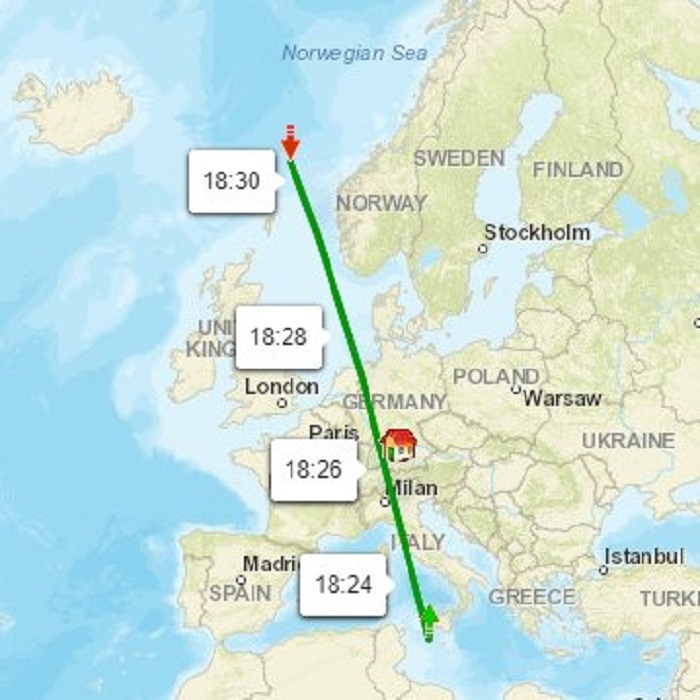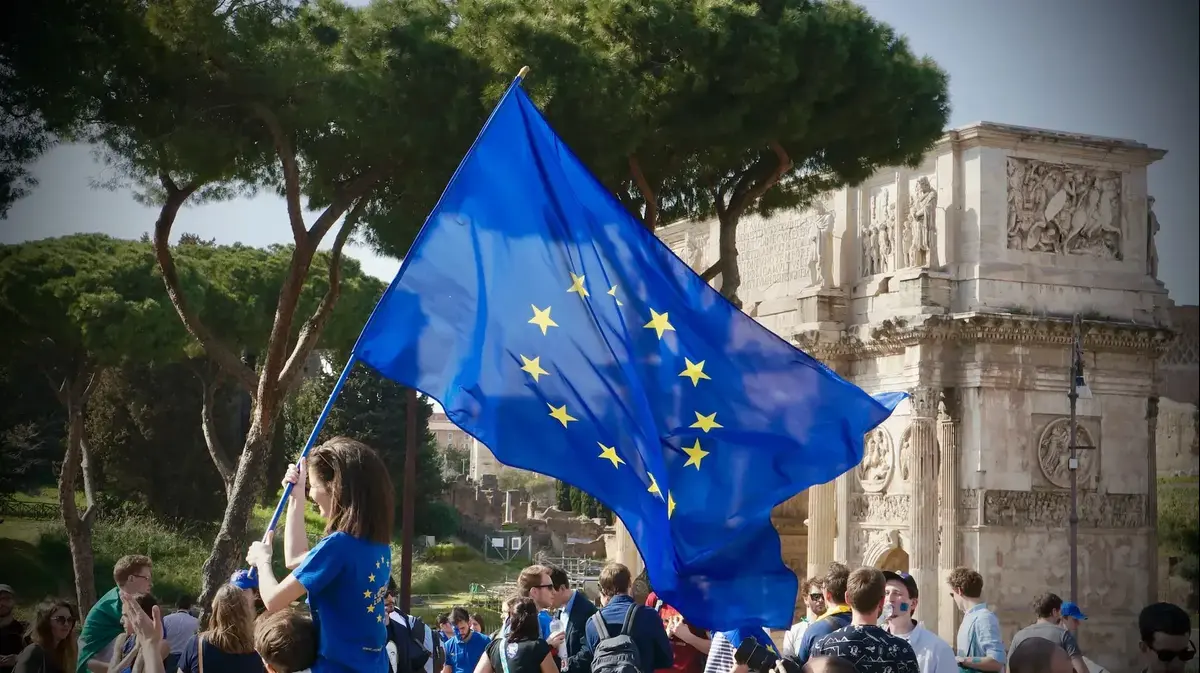Cyrille Dalmont is an associate researcher at the Thomas More Institute. He has just published the report
The impossible European digital sovereignty: analysis and counter-proposals.
As the war for semiconductors, chips and microprocessors rages on and a global shortage that will impact all sectors of the economy looms, European leaders are paying for themselves by rolling machinery and making grand declarations on “
European digital sovereignty
”.
The reality is otherwise brutal: the European Union and its members are in a state of serious technological deprivation and near subjection to foreign digital giants.
The king is totally naked.
To understand this state of affairs, we must (quickly) question the history and relationship of Europeans to sovereignty.
The very philosophy of European construction is based on the thought of men of the nineteenth century who, for some, had taken part in the two world wars.
From the trauma of these fratricidal wars emerged the idea that too much sovereignty inevitably led to heightened nationalism and deadly conflicts.
the European Union has created favorable conditions for the emergence of a large market without barriers or discrimination but to the detriment of the production tool and the sovereignty of its members.
The project of construction of the European Union was therefore entirely based on the idea of going beyond the sovereignties of European nations by the creation of an atypical international organization (EEC then EU) whose competences would be linked to the successive relinquishments of sovereignties of its members and the creation of a large free trade market, intra-European and originally closed.
From this point of view, it was a great success: no war has been deplored in Europe since 1945.
But this originally closed internal market, supposed to protect European economies while allowing fair and respectful competition between Europeans, has become over the decades and the acceleration of globalization a promised land for foreign companies.
Indeed, from the 1980s and especially with the Maastricht Treaty (1992), the entire structure of European competition law was based on the idea of building an open, fluid, dynamic and unhindered market. for the benefit of the consumer.
Read also:
"European digital sovereignty deserves a strategy, not incantations"
By making this choice, the European Union has created favorable conditions for the emergence of a large market without barriers or discrimination as to the origin of products from the four corners of the world but to the detriment of the production tool and of the sovereignty of its members.
If we analyze this result through the prism of the universalist vision of the Founding Fathers of the European Union, when the West and its colonies represented 50% of the world's population, it is a success.
In contrast, in an ultra-connected twenty-first century in which bitter economic wars are largely based on state sovereignty and where the West represents only 12% of the world's population, it is Pearl Harbor. !
In the world's Top 20 companies in the technology sector, only one European company remains, Deutsche Telecom.
The facts are there.
And they are relentless.
In the world's Top 20 companies in the technology sector, only one European company remains, Deutsche Telecom.
In the world Top-5 of hardware companies, there is no European company.
The same goes for operating systems, the cloud, data centers, smartphones, semiconductors, chips and microprocessors.
Deprivation is also growing in the areas of satellites (two-thirds of which belong to the United States, China and Russia) as well as the submarine cables and relay antennas required for transport. Datas.
Our technological disarmament is such that some now no longer hesitate to qualify the European Union as a “
digital colony
”.
Subject to strong tension and numerous criticisms in front of the observation of the European Union's over-dependence on foreign digital giants brought to light by the Covid 19 pandemic, the European Commission is striving to look good: in March 2020, it presented its plan “
Shaping the digital future of Europe
”;
a year later, it has just proposed a “
digital compass
” to “
translate the digital ambitions of the EU for 2030 into concrete terms
”.
But beyond words, what reality?
The Gaia-X project, supposed to revolutionize cloud solutions in Europe, is in no way sovereign since the Americans Microsoft, Google or Palantir and the Chinese Alibaba and Huawei are among the hundred or so companies participating in the project.
As for the European broadband Internet satellite project, its implementation is scheduled for 2024 while the American “
Starlink
” service will be available in Europe by the end of 2021… Examples of this type abound.
Read also:
5G: "To maintain its digital sovereignty, Europe must bring out new champions"
The problem, as we have said, is European competition law.
This is the main obstacle to the exercise of any “
digital sovereignty
” in Europe and to the emergence of world-class champions.
At this stage of our demonstration, we should therefore recommend an overhaul of the treaties because there can be no change in the direction of European policy without a profound change of paradigm.
But, beyond the particularly restrictive and time-consuming aspects of the process, the hidden tensions which cross the EU would risk resurfacing and seriously threatening the whole structure.
No one today wants to open the Pandora's box of treaty renegotiation.
This is why we formulate in our report nine proposals, which could be adopted with constant right, in order to react quickly and strongly to put an end to our digital decline.
The first proposal would consist of the adoption of an exceptional regulation aimed at the non-application of European competition law in strategic areas linked to digital technology.
The first proposal, the cornerstone of all the others, would consist of the adoption of an emergency regulation aimed at the non-application of European competition law in strategic areas linked to digital technology.
This will help stimulate European reindustrialisation.
We also propose to revise the statute of European Economic Interest Groupings (EEIG) and the creation of European Special Economic Zones (ZESE) and European Public Interest Groupings (GIPE) through two new European regulations.
This will make it possible to secure the electronic chip and semiconductor market and to implement an industrial innovation strategy in the connected objects sector, but also to reinvest in the smartphone market and promote the emergence of data centers and world-class sovereign clouds in member states.
We also want to promote the emergence of a European strategy in the field of autonomous heavy vehicles, an essential link in the emergence of a low-carbon economy.
All of these measures, and the others that we are putting forward, could be adopted within the next two years.
For this, the leaders should be capable of both humility and ambition: humility of the verb by stopping to shake rattles like that of “
European digital sovereignty
” which pollutes the debate and maintains the illusion, but ambition for Europe and Europeans by setting a few strong objectives, by not deviating from them and by giving themselves the means to achieve them.















